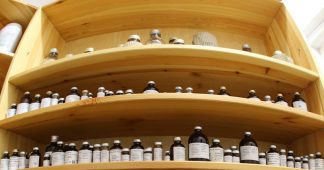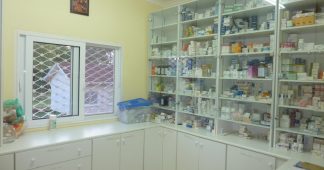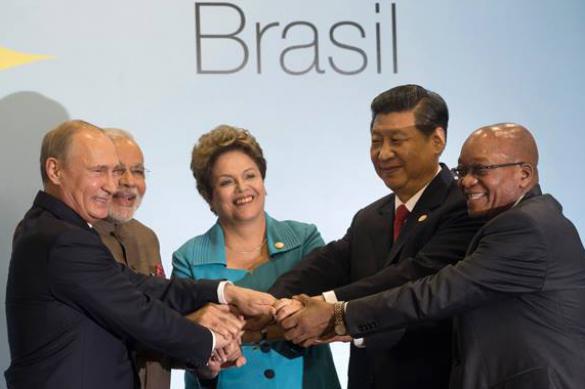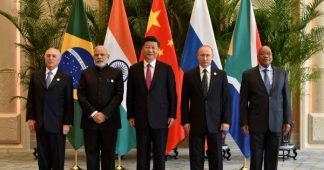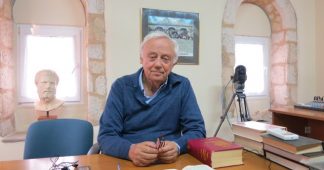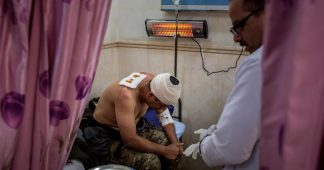Final Declaration of the Meeting of BRICS Country Specialists in traditional medicine
The Meeting of BRICS country specialists in traditional medicine was held as part of the 2nd Congress on traditional medicine of SCO, BRICS and EEU countries (the Congress).
By directive of the Ministry of Health of the Russian Federation, the Congress was included on the program of the international Forum “Russian Healthcare Week 2017”. The Congress participants received a welcome from the Committee of the Council of the Federation of the FA RF for social policy and the Committee of the State Duma of the FA RF on healthcare.
The purpose of the meeting: to assist regulatory bodies of BRICS countries in implementing the Unified declaration of the BRICS countries on strengthening co-operation in traditional medicine, signed by the BRICS health ministers at a meeting in Tianjin (China) on 6 July 2017.
The meeting was held in Russia partly because Russia acts as a catalyst to all the integration processes within the BRICS space and partly because RF Minister of Health V.I. Skvortsova was elected President of the World Health Assembly of the World Health Organization (WHO).
The meeting was chaired by Senior Vice-Chairman of the Committee of the State Duma of the FA RF on healthcare F.S. Tumusov and was attended by representative of the Ministry of Health of the RF and a number of regulatory bodies of other BRICS countries.
The participants expressed their gratitude to the Ministers of health of all the BRICS countries (the Countries) for supporting traditional treatment systems and methods, noting that the World Health Organization considers this sphere to be a “healthcare resource” and suggests that active use be made of this resource in accordance with the WHO Traditional Medicine Strategy 2014—2023.
During the meeting, the BRICS traditional medicine specialists spoke about the regulation systems in their own countries, the positive aspects of these systems and the shortcomings requiring more work.
Organizational and methodological specifics of how Traditional Chinese medicine, Ayurveda, Phytotherapy, Hirudotherapy, and Homeopathyare used in the BRICS countries were reviewed, alongside aspects of specialist training, co-operation between higher educational institutions, availability of medicines, permission practice and so on.
The participants in the meeting noted that recent times have seen substantial shifts in resolving many problems associated with using the methods of traditional medicine.
Particular note was made of the efforts of the Ministry of Health of the RF, thanks to whose support joint (Russia—China) educational programs in traditional medicine are being opened in Russian medical educational institutions. Russian doctors have received an opportunity to study and undergo internships in traditional medicine at higher educational institutions in India and China. With the support of the Ministry, international scientific congresses in traditional and alternative medicine are being held. For further improvement of legal regulation, the Ministry formed a special Coordination Council. The Ministry has demonstrated its resistance to external pressure in providing patients with the right to choose their physician, treatment institutions and additional treatment methods, such as when an attempt was made to deprive Russian patients of the opportunity to take homeopathic medicines.
India has extensive experience of regulating and supporting various spheres of traditional medicine, initially within the scope of a Department of the Ministry of Health and later a separate Ministry of AYUSH (Ayurveda, Yoga and Naturopathy, Unani, Siddha, Homeopathy). The Ministry of AYUSH organizes within India national and international congresses and conferences, supports training in this field both in India and in other countries, organizes and sponsors both clinical trials in these fields and fundamental research (especially in homeopathy), which are held throughout the world. Citizens of India are free to choose their treatment specialist and method, these services being provided not only for a fee but also free of charge. Govt. of India has set up strong infrastructure of AYUSH systems of treatment not only for education, practice and also for research not only for accessibility of these treatment but also for the development of the respective system. Therearepharmacopeiasavailableforallthesefields for regulating quality of these medicine.
Since 2006, in Brazil, the integrativemedicine has been included into the public health system by a specific national law. Consequently, there are relevant structures in the leading universities of the country that conduct research into various fields of traditional medicine, every University member of staff may choose such a subject for their research topic. In particular, a Homeopathic Pharmacopeia, supported by the Brazilian government, is constantly updating by a homeopathic specialists, since 1976. Besides, the Brazilian Homeopathic Researchersare actively involved under way within the scope of GIRI (GroupeInternational de Recherche sur I´Infinitésimal).
In the South African Republic, there are also special laws regulating the development of traditional medicine. A number of leading universities have chairs in various fields of traditional medicine, including ones organized with support from India. There is a system in place for recognizing specialists who have undergone training in other countries. Traditional medicine is regulated, like all medicine, within the scope of the Allied Health Professions Council of South Africa, where specialists are registered. During registration of traditional medicine medicines, the state exercises control only over the quality, while matters of effectiveness and use are left to the specialists of the above Council.
In China, Traditional Chinese medicine enjoys considerable State support for its development both within the country and throughout the world, for obtaining modern medicines on the basis of traditional formulae, scientific justifications, etc.
Despite the successes, however, shortcomings were also noted that hamper integration processes in this sphere within the BRICS space. In particular, the absence of unified approaches to education levels sufficient for allowing physicians to practice, general approaches to using medicines used in traditional medicine, use of traditional medicine methods and medicaments in standard therapy, and difference relating to immigrant specialists working.
During the discussions, the participants in the meetings drew the following conclusions:
– development of co-operation in the sphere of traditional medicine within the BRICS space is a result of evolutionary processes in politics and economics, as well as confirmation of the effectiveness of traditional medicine from the positions of modern science;
– support for development of traditional medicine by the Countries’ governments is also dictated by the interests of carrying for their citizens’ health and complies with the relevant WHO Strategy;
– the long-standing experience of using traditional medicine methods and medicaments testifies that they may also be used in modern treatment at the patient’s wish;
– legal regulation of the sphere of traditional medicine differs between the Countries and this hampers establishment of a common economic space for movement of traditional medicine specialists and medicines;
– maximum fulfilment of the integration tasks in this sphere in the BRICS space can be achieved by means of agreements similar to in the EEU, after first improving the national legal framework.
The representatives of national regulators spoke on the whole in agreement with the participants’ conclusions.
Having discussed the above, the participants in the meeting adopted a decision to call on the national regulators in the sphere of traditional medicine of the BRICS countries with the following recommendations:
1/ relying on the WHO Traditional Medicine Strategy 2014—2023 and agreements concluded within the BRICS framework, to recognize the role of traditional medicine as a valuable additional treatment resource in the national healthcare system;
2./ to organize relevant expert advisory bodies, forming, in accordance with WHO Resolutions, national expert committees relying on personnel proposals of national professional associations of specialists in the field;
3/ to propose reviewing existing forms of education, practice and drug regulatory laws by a core group constituted through representatives from the BRICS countries for each system of traditional medicine, for the purpose of harmonization;
4/ on the basis of proposals by professional communities in the relevant field and the national committee of experts, to consider and select a model for further improving the national rules for regulating the sphere of traditional medicine, introducing the requisite amendments into the national legislation;
5/ on the basis of proposals by professional communities in the relevant field and the national committee of experts, to develop a Road Map for implementing the selected national regulation model, including a “transitional period”, specifying the deadlines for its fulfilment;
6/ during the period of adjustment to the national legislations, to propose to national regulatory that they form a unified contract group of experts on the strategic development of traditional medicine in the BRICS space.
6/ Promoting multi-countries joint research for addressing the health problems common to the BRICS countries and for the development of respective TM treatment system.
7/ Forthe purpose of monitoring fulfilment of the given recommendations and discussion of further integration in the field of traditional medicine within the BRICS space, to suggest that, at one of the meetings soon to be held between the health ministers of the Countries, to found a BRICS Traditional Medicine Congress held once every two years in the country chairing BRICS.
This document was adopted unanimously by the participants in the meeting on 15.12.2017 in Moscow (Russia).
